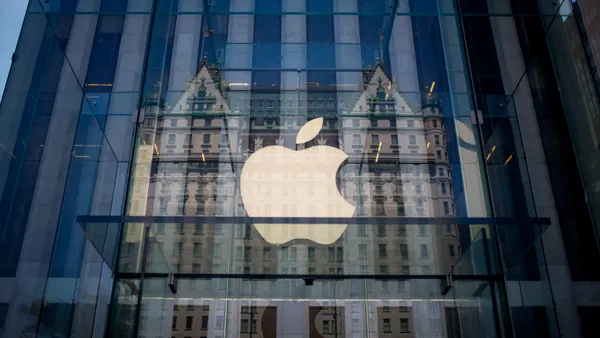Dive Brief:
- Cybersecurity and technology disruption — often caused by malicious artificial intelligence manipulation — ranked as top threats to business growth in a recent Harris poll commissioned by global insurer Chubb.
- Cyber breaches and data leaks were cited by 40% of executives as growth disruptors, far outpacing other categories including accidents, regulations, social unrest and hazmat exposures, according to a report on the findings.
- “Risks that are reported on regularly today — especially those related to cyber security, artificial intelligence, climate change and reputational damage as a result of viral social media events — were either previously non-existent or have intensified greatly over the last 10 years,” the report said.
Dive Insight:
The global average cost of a data breach last year was nearly $4.9 million, a 10% spike compared with 2023 levels, according to IBM research.
UnitedHealth said in late October that a massive cyberattack against its Change Healthcare subsidiary in early 2024 may have compromised data from 100 million people — the largest healthcare data breach ever reported to federal regulators, Industry Dive sister publication Healthcare Dive previously reported.
Earlier in October, the healthcare giant reported $2.5 billion in total financial impacts from the attack through the nine months ended Sept. 30, including $1.7 billion in direct response costs. The company estimated a business disruption impact of $705 million.
“We continue to work with customers to bring transaction volumes back to pre-event levels and to win new business with our now more modern, secure and capable offerings,” UnitedHealth CFO John Rex said during an earnings call at the time. “We expect to continue to build back the business to pre-attack levels over the course of ‘25 and estimate next year's full year impact will be roughly half of the ‘24 level.”
AT&T, Ticketmaster owner Live Nation Entertainment and Dell are among other companies that reported major data breaches in 2024.
In Chubb’s study, 40% of executives reported that cyber breaches and data leaks have been the most disruptive and financially burdensome man-made threats.
The research found that 86% of companies already have or will soon adopt business interruption coverage for events like cyberattacks, natural disasters or supply chain disruptions, with 53% having coverage in place and another third planning to add it in the next 12 months.
Monitoring cyber incidents and events emerged as the most commonly deployed risk mitigation tool employed by businesses.
“Corporate leaders must take a holistic approach to simultaneously mitigate both new and old business risks effectively,” the report said. “They must also develop the ability to monitor and mitigate all these risks around the clock to ensure they are effectively protected.”
The report was based on a survey of 517 executives across various industries in the U.S. and Canada.











